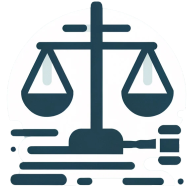How Do Intellectual Property Rights Shape Business Decisions?
Navigating the complex landscape of intellectual property rights is crucial for any business looking to innovate and thrive. This article draws on the wisdom of industry experts to shed light on how intellectual property shapes strategic business decisions. From pivoting business models to securing licensing agreements, uncover the expert strategies that can position your business for success.
- Influence Innovation and Market Positioning
- Pivot Business Models to Avoid Infringement
- Secure Licensing for Medical Illustrations
- Expand Markets with Protected Product Designs
Influence Innovation and Market Positioning
Intellectual property rights significantly shape business decisions by influencing how companies approach innovation and market positioning. In my experience, ensuring robust IP protections often dictates whether a business invests in developing proprietary solutions. For instance, when creating custom software for a client, we carefully assess whether the IP will reside with us or the client, as this decision directly affects licensing potential and future revenue streams.
This awareness of IP rights fosters a strategic mindset, encouraging businesses to safeguard their competitive advantage while respecting legal boundaries. It's not just about protecting assets—it's about leveraging them to create partnerships, expand into new markets, or establish brand authority. The key is recognizing that IP is as much a business enabler as it is a legal safeguard, shaping decisions that drive growth and innovation.
Pivot Business Models to Avoid Infringement
In my practice, I've seen startups completely pivot their business models after discovering their core product would infringe on existing patents - it's a tough lesson that costs both time and money. Just last month, I helped a medical device company structure their R&D roadmap around existing IP landscapes, which meant carefully analyzing competitor patents before investing millions in development.

Secure Licensing for Medical Illustrations
A client once faced a copyright issue over using licensed medical illustrations. They wanted visuals to explain catastrophic injuries during a high-profile legal case. We ensured they secured proper licensing agreements to avoid intellectual property conflicts. This protected both the client's reputation and the integrity of their case. Intellectual property vigilance became critical in building trust with stakeholders and juries.

Expand Markets with Protected Product Designs
In my role as a lawyer specializing in estate planning, I've seen firsthand how intellectual property rights can have a big impact on business decisions. For example, I've worked with clients who own unique product designs or trademarks. Securing protection for these assets gave them the confidence to expand into new markets, knowing their intellectual property was safeguarded from infringement. This protection not only helped strengthen their position in the market but also boosted the overall value of their business. As a result, it played a key role when it came time to secure funding or consider acquisitions. Ultimately, intellectual property rights are often a critical factor in how businesses grow and protect their assets.



